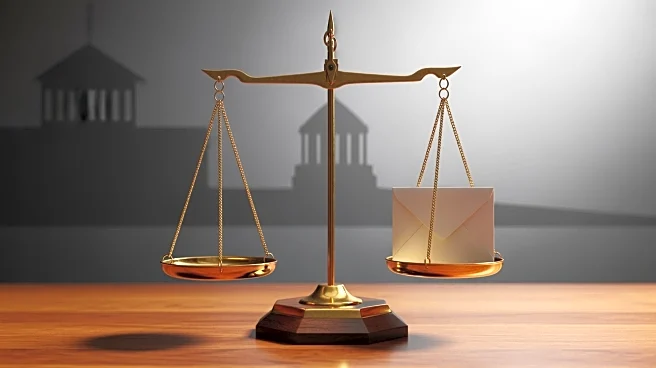What's Happening?
The U.S. Supreme Court has agreed to review a case concerning the counting of mail ballots that arrive after Election Day, a decision that could affect approximately 30 state laws ahead of the upcoming midterm elections. The case involves a Mississippi
law allowing mail ballots to be counted up to five business days post-Election Day, which a federal appeals court invalidated. The Republican Party challenges this measure, arguing it conflicts with federal law. The Supreme Court's decision, expected by July, aims to resolve legal uncertainties surrounding mail ballot deadlines, a contentious issue in recent elections.
Why It's Important?
The Supreme Court's decision could have significant implications for election laws across the United States, particularly regarding mail-in voting procedures. With mail voting becoming increasingly popular, the ruling may influence how states set deadlines for ballot receipt, potentially affecting voter turnout and election outcomes. The case highlights the ongoing debate between Republicans advocating for strict deadlines and Democrats seeking more flexibility. A ruling in favor of Mississippi could lead to changes in election laws in other states, impacting how future elections are conducted.
What's Next?
The Supreme Court's review of the case will likely lead to a decision by July, providing clarity on the legal standards for mail ballot deadlines. Depending on the outcome, states may need to adjust their election laws to comply with the ruling. Political leaders and election officials will closely monitor the case, as it could set a precedent for future election-related legal challenges. The decision may also prompt legislative action at the state level to address any changes required by the court's ruling.
Beyond the Headlines
The case underscores the broader implications of federalism in the U.S. electoral system, where states have the autonomy to set their own election procedures. The Supreme Court's involvement reflects the ongoing tension between state and federal authority in election law, a critical issue in maintaining the integrity and fairness of the electoral process.















